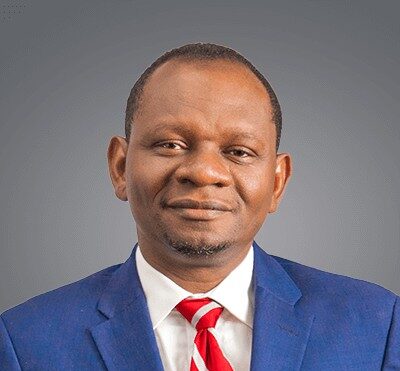
The Federal Government, through the National Primary Health Care Development Agency (NPHCDA), has announced the revitalisation of over 901 primary health centres (PHCs) nationwide, with plans to upgrade an additional 2,701 facilities.
The initiative is part of a broader effort to ensure at least one fully functional PHC in every political ward across Nigeria.
The executive director of NPHCDA, Dr. Muyi Aina made the announcement during the agency’s first quarterly press briefing for 2025 held Tuesday in Abuja. He said the move aligns with the Nigeria Health Sector Renewal Investment Programme and the Health Sector Strategic Blueprint.
Aina explained that the agency is implementing a three-pillar strategy aimed at strengthening PHC systems, restoring public trust in healthcare and enhancing frontline health security. “Our goal is to rebuild trust in our health system by ensuring that every Nigerian, regardless of location, has access to quality, functional primary health care,” he said.
According to Aina, NPHCDA conducted a nationwide assessment of more than 18,000 PHCs and uncovered significant service delivery gaps. These are now being addressed through increased federal investment and strategic collaboration with state governments and development partners.
He disclosed that funding support under the Basic Healthcare Provision Fund (BHCPF) will expand from 8,406 PHCs to 17,600, with tiered financial allocations based on patient volume. High-volume PHCs will now receive N800,000 per quarter, while lower-volume centres will get N600,000, compared to the previous flat rate of N300,000.
Aina also introduced new digital tools to enhance transparency and performance tracking. These include a real-time public dashboard accessible at https://phc.nphcda.gov.ng and a digital financial management application already piloted in four states. The innovations aim to streamline operations, monitor fund usage, and ensure accountability across all supported PHCs.
He highlighted additional key developments: the launch of a digitised financial system to manage PHC funding more effectively, expanded use of BHCPF’s four funding gateways – NPHCDA, NHIA, NCDC and NEMSAS – for infrastructure, health security and emergency response and federal mobilisation of over one billion dollars for PHC revitalisation. Aina also reaffirmed the agency’s focus on workforce development and deeper partnerships with states to strengthen human resource capacity and ensure consistent staffing.
The announcement coincided with Nigeria’s celebration of African Vaccination Week 2025, observed under the theme “Immunisation for All is Humanity Possible.” Aina used the occasion to reaffirm NPHCDA’s commitment to reaching every child and community with life-saving vaccines and urged citizens and the media to make use of the public dashboard to track progress and support government accountability.
Head of the expanded programme on immunisation at the World Health Organisation (WHO), Dr. Eshetu Wassie said immunisation remains a cornerstone of primary healthcare and a fundamental human right. “Immunisation is one of the most powerful and cost-effective health investments known to humankind,” he said.
Wassie noted that vaccines have saved over 154 million lives in the last 50 years—an average of six lives every minute. “As we gather to mark 2025 and African Vaccination Week, I urge governments, partners, health workers, communities and the media to recommit to this life-saving mission. Together, we can defeat vaccine-preventable diseases and ensure no one is left behind,” he said.
UNICEF representative in Nigeria, Christian Munduate stressed the urgency of reaching the most underserved populations. “Immunization is a critical pillar in safeguarding the health and future of Nigeria’s children. Yet, one in three infants remains unreached – these zero-dose children are the most vulnerable among us,” she said.
Munduate called for stronger partnerships, increased domestic financing, and community-led approaches to overcome challenges such as insecurity and access. She also appealed to the media to support vaccine awareness efforts.
“I call on the media to stand with us – not to amplify misinformation but to build trust in vaccines and ensure that no child is left behind,” she said.

